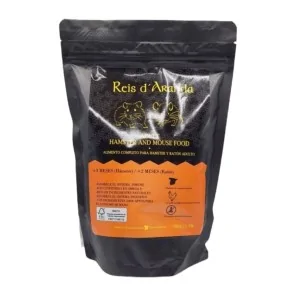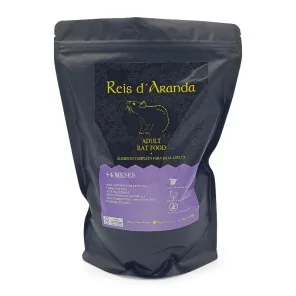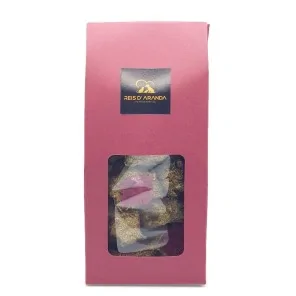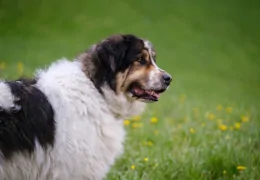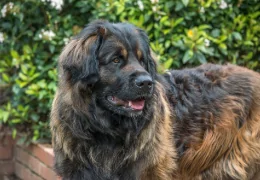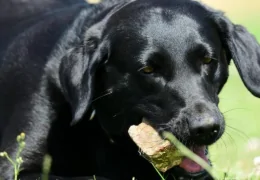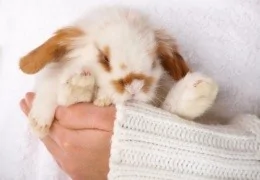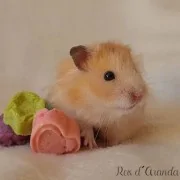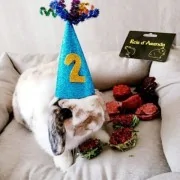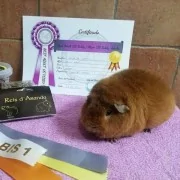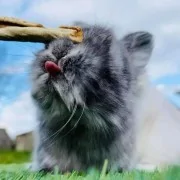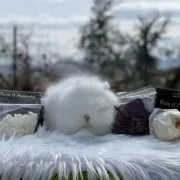The Tornjak originated from genetically homogeneous, almost extinct, indigenous shepherd dogs. These dogs have...
DIARRHOEA IN SMALL PETS
INTRODUCTION
There are animals that were once considered to be exclusive to livestock environments, but have gradually been transformed into highly valued pets. They are loyal and very affectionate companions that have the qualities to become the best pets in the world.
It is in this group of farm animals, which have gradually evolved from mere breeding stock to much-loved domestic animals, that we can identify the rabbit. A rabbit, a guinea pig or a hamster are of course very different from a dog or a cat and the attention they require is very different, but this does not mean that they do not require certain quite specific attentions.
As with any animal, they require certain conditions to ensure their health and physical well-being. This is essential to avoid complications such as the following: the problem of diarrhoea in rabbits.
SYMPTOMS OF DIARRHOEA IN SMALL PETS
The clinical picture of diarrhoea in small pets is only slightly different from ours. The most common symptoms are:
- Stool consistency changes from solid to liquid or pasty (not to be confused with megacolon's disease).
- Poops are smaller, stick together and form chains of poops.
- They may contain mucus or blood.
- An unpleasant smell may be another sign of diarrhoea.
- The animal is tired, eats less and loses weight.
- Stomach pain can be recognised by the animal grinding its teeth and standing still in a corner.
Diarrhoea causes the rabbit to lose water and electrolytes such as sodium. This upsets the electrolyte balance. If diarrhoea in rabbits is very intense or lasts a long time (chronic), it can also cause their circulation to worsen dramatically.
WHAT CAUSES DIARRHOEA IN SMALL PETS?
Diarrhoea in small pets can have many causes. Some only cause diarrhoea when the immune system is weakened by stress or other underlying illnesses.
INFECTIOUS CAUSES:
- Intestinal parasites (nematodes, coccidia and giardia).
- Viral diseases (coronavirus and rotavirus).
- Bacterial intestinal infections
- yeasts
NON-INFECTIOUS CAUSES:
- Food intolerances, sudden food changes, ingestion of indigestible objects (e.g. bedding or plastic parts) or highly fermented food with a lot of sugar.
- ingestion of plant poisons (e.g. oleander) or medicines
- Stress due to a newcomer or too much noise
- Dental problems
WHAT ARE THE CONSEQUENCES OF DIARRHOEA IN SMALL PETS?
In the most serious cases the consequence of diarrhoea is intense dehydration, kidney failure for the same reason and the death of the animal. In the case of coccidiosis, the intestinal flora is destroyed and produces very painful gas, which will cause the animal to suffer until death.
MY PET HAS DIARRHOEA, WHAT CAN I DO?
The only solution is to provide him with fresh, quality water or saline solution with a syringe if he does not want to drink and go to the vet, clean him with alcohol-free wipes every time he soils himself and if it is a parasite infection (coccidiosis) we will keep him away from other animals and maximise the infection to try to infect others through our hands, shoes or utensils. We will go to our vet without hesitation and we will follow his instructions to the letter.
CONCLUSION
As we can see, diarrhoea can be very dangerous in small pets, the risk of dehydration and death is quite high and we must act quickly by going to the vet to avoid a fatal outcome.
Leave a comment
Log in to post comments

